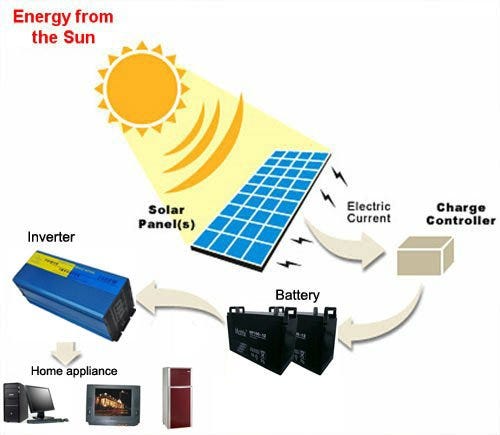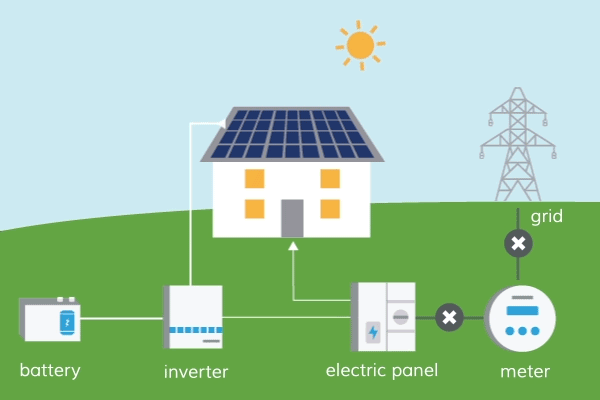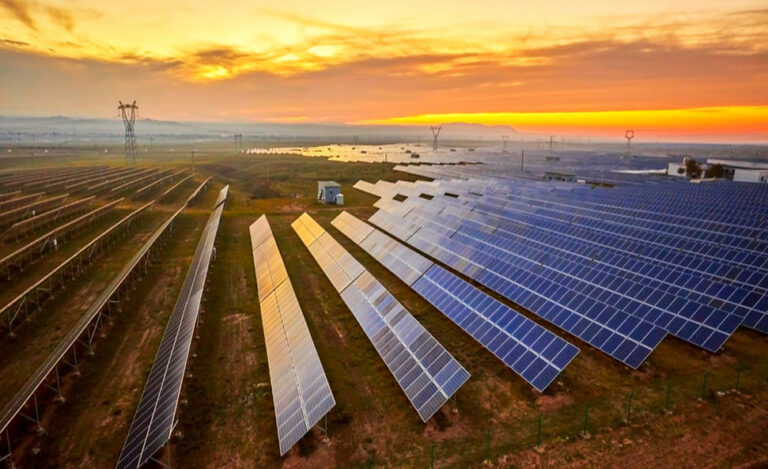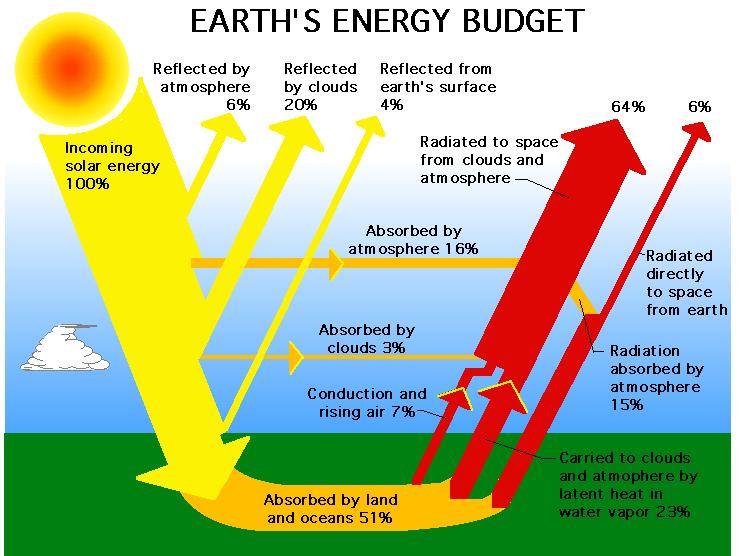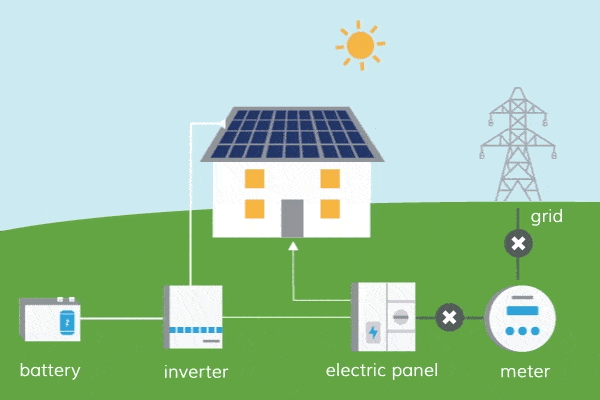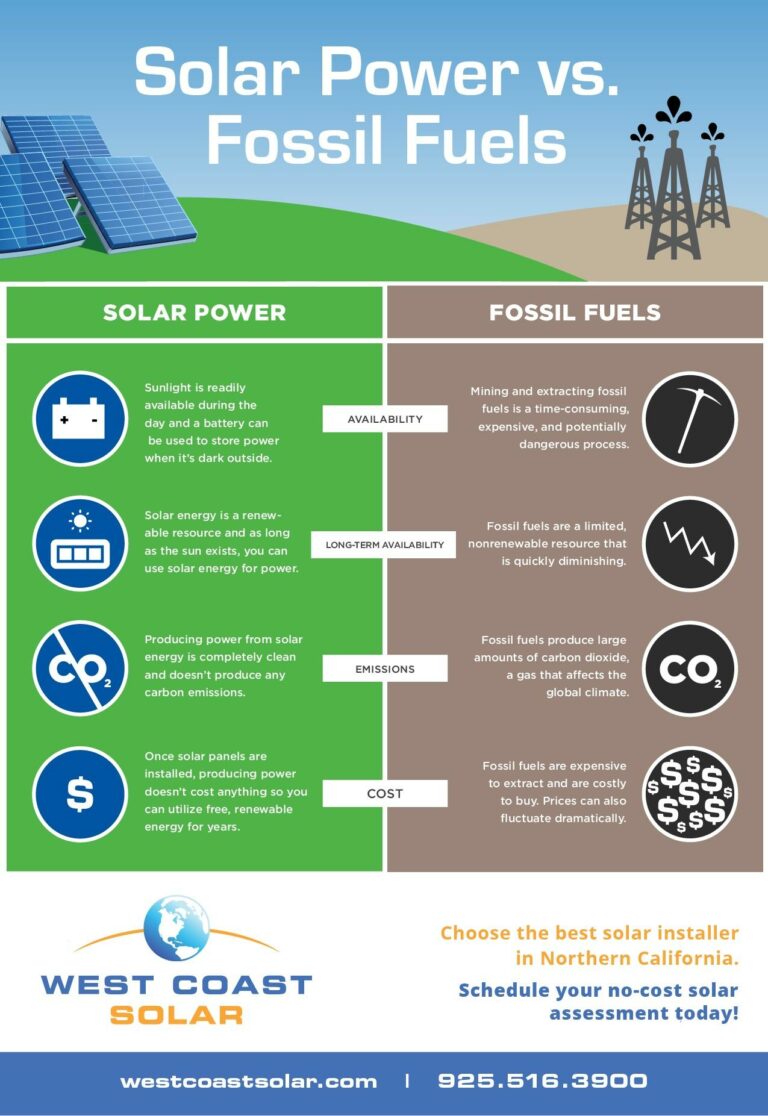Does Solar Energy Work During A Power Outage?
When the power goes out, it can be a real bummer, right? No lights, no gadgets, and no TV. But what if there was a way to keep your home powered even during an outage? That’s where solar energy comes in. So, does solar energy work during a power outage? Let’s find out!
You might be wondering how solar energy works. Well, it’s pretty cool. Solar panels, which are typically mounted on the roof, absorb sunlight and convert it into electricity. This electricity can power your home’s appliances and charge your devices. But what happens when the sun isn’t shining? Can solar energy still work its magic during a power outage?
The answer is both yes and no. While solar panels can generate electricity during an outage, they won’t be able to power your home if you’re solely relying on the electric grid. However, if you have a solar battery system installed, the excess energy generated by your panels can be stored in the battery and used when the power goes out. So, even if the neighborhood is in darkness, your home can still be up and running with solar energy. Pretty neat, huh? Now let’s dive deeper into how it all works.
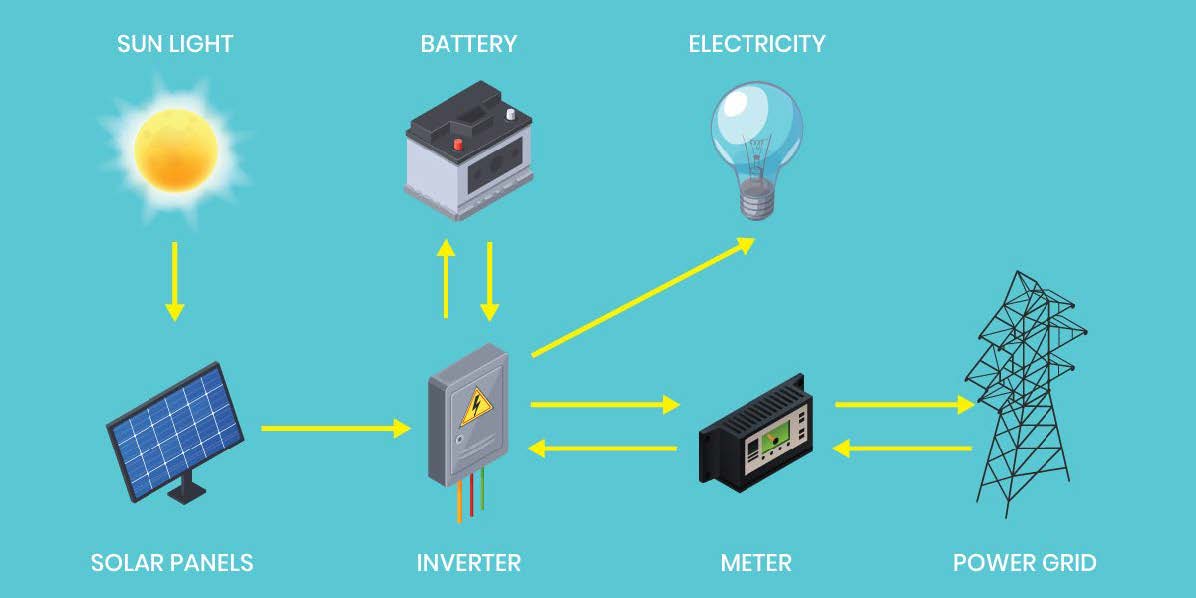
Does Solar Energy Work During a Power Outage?
Solar energy has gained significant popularity as a renewable and sustainable source of power. Many people are curious about whether solar energy can continue to generate electricity during a power outage. In this article, we will explore the capabilities of solar energy systems during power outages, including their benefits, limitations, and tips for maximizing their efficiency.
How Solar Energy Works
Solar energy works by harnessing the power of the sun and converting it into usable electricity. The most common way to generate solar power is through the use of solar panels, which are installed on rooftops or in open spaces. These panels consist of photovoltaic cells that absorb sunlight and convert it into direct current (DC) electricity. An inverter then converts the DC electricity into alternating current (AC) electricity, which is the type used in homes and businesses.
During regular operation, solar energy systems are connected to the electrical grid. Excess electricity generated by the solar panels is fed back into the grid, and homeowners can receive credits for this surplus power through net metering. However, when a power outage occurs, the flow of electricity from the grid is disrupted, and this raises the question of whether solar energy can continue to power a home or business.
The Role of Batteries: Storage and Backup
One solution to ensuring a continuous supply of electricity during a power outage is the use of battery storage systems. These batteries can store excess solar energy generated during the day and provide power during the night or when the grid goes down. With a battery backup, solar energy systems become independent from the grid and can continue to power essential appliances and devices even when there is no access to utility power.
Batteries are an essential component of solar energy systems in areas prone to frequent power outages or places with unreliable grid infrastructure. During a power outage, the battery backup system automatically detects the disruption and switches to battery power seamlessly. This provides individuals with peace of mind, knowing that their essential needs will be met even when the grid is down.
However, it is important to note that not all solar energy systems come with battery backup capabilities. The decision to incorporate battery storage should be made during the initial system design phase. Retrofitting an existing solar energy system with batteries can be more complex and costly.
Optimizing Solar Energy Performance during Power Outages
While battery storage systems can provide backup power during a power outage, their capacity is not unlimited. It is important to optimize solar energy performance to make the most of the available energy. Here are a few tips to maximize solar energy efficiency during power outages:
1. Prioritize essential appliances: Identify and prioritize the appliances and devices that you need to power during a power outage. By focusing on essential items like refrigerators, medical equipment, or communication devices, you can ensure that the available solar energy is used efficiently.
2. Energy-efficient appliances: Investing in energy-efficient appliances can make a significant difference during power outages. Devices that consume less electricity will stretch the available solar energy further and extend the battery backup time.
3. Reduce energy consumption: When relying on solar energy during a power outage, it is crucial to be mindful of energy usage. Minimize unnecessary electricity consumption by turning off lights, unplugging electronics, and using appliances only when necessary.
4. Regular system maintenance: Keeping your solar energy system well-maintained and clean will optimize its performance. Regularly inspect and clean the solar panels to ensure maximum sunlight absorption and energy generation.
5. Consider a hybrid system: In regions with frequent power outages, a hybrid system that combines solar energy with another renewable energy source, such as wind or hydro power, can provide additional backup options. This combination of energy sources increases resilience and reduces dependency on a single energy solution.
By following these tips, you can make the most of your solar energy system during a power outage and continue to enjoy the benefits of sustainable and reliable electricity.
Solar Energy: Benefits and Versus
Solar energy is a sustainable and renewable source of power that offers numerous benefits. Let’s explore the advantages of solar energy and compare it to other energy sources to understand why it is an increasingly popular choice for homeowners and businesses alike.
Benefits of Solar Energy
1. Renewable and sustainable: Solar energy relies on the power of the sun, which is an abundant and renewable resource. Unlike fossil fuels, which are finite and harmful to the environment, solar energy offers a clean and sustainable alternative.
2. Cost savings: Once a solar energy system is installed, it can significantly reduce or eliminate electricity bills. The initial investment might be substantial, but over time, the savings on utility bills can offset the installation costs. Additionally, government incentives and tax credits are often available to help reduce the upfront expenses.
3. Energy independence: Solar energy systems provide individuals with energy independence. By generating their own electricity, homeowners and businesses can reduce their reliance on the grid and become more self-sufficient.
4. Low maintenance: Solar panels are built to withstand various weather conditions and require minimal maintenance. Regular inspections and cleanings can ensure optimal performance and longevity.
5. Environmental impact: Solar energy systems produce clean electricity without emitting greenhouse gases or other harmful pollutants. By choosing solar energy, individuals contribute to a cleaner and healthier environment.
Solar Energy vs. Other Energy Sources
1. Solar Energy vs. Fossil Fuels: Solar energy is a sustainable alternative to fossil fuel-based energy sources. While fossil fuels contribute to pollution and climate change, solar energy has a minimal environmental footprint and does not deplete natural resources.
2. Solar Energy vs. Wind Energy: Solar and wind energy are both renewable sources of power. Solar energy is more predictable and consistent, as the sun shines every day, while wind patterns can vary. However, wind energy has the advantage of producing power even at night or during cloudy days, making it a suitable complement to solar energy systems.
3. Solar Energy vs. Hydroelectric Power: Hydroelectric power relies on water flowing through turbines to generate electricity. While hydroelectric power is also renewable, it requires specific geographical conditions and access to water bodies. Solar energy, on the other hand, is more flexible and can be harnessed in a wider range of locations.
4. Solar Energy vs. Geothermal Energy: Geothermal energy utilizes heat from the Earth’s core to generate electricity. While geothermal energy is an efficient and sustainable source, it is limited to specific regions with geothermal activity. Solar energy, on the other hand, can be harnessed almost anywhere, as long as sunlight is available.
Each of these energy sources has its unique advantages and limitations. Choosing the right energy solution depends on factors such as location, energy needs, and environmental considerations.
Maximizing Solar Energy Efficiency
To make the most of your solar energy system and ensure optimal efficiency, there are several key considerations to keep in mind. Let’s explore these factors and discover ways to maximize the output of your solar panels.
System Design and Orientation
The design and orientation of your solar energy system play a crucial role in its overall efficiency. Here are some factors to consider:
1. Panel tilt and orientation: Solar panels should be installed at an angle and orientation that allows them to receive maximum sunlight throughout the day. Consult with a solar energy professional to determine the optimal tilt and orientation for your specific location.
2. Shading: Avoid shading on your solar panels as much as possible. Even partial shading can significantly impact the overall output of the system. Trim nearby trees or consider installing the panels in areas with minimal shading.
3. Panel cleanliness: Regularly clean your solar panels to remove dust, dirt, and other debris that may accumulate over time. Clean panels ensure maximum sunlight absorption and energy generation.
Energy Storage and Management
Efficient energy storage and management are essential for optimizing solar energy efficiency. Consider the following factors:
1. Battery storage: Incorporating battery storage into your solar energy system allows you to store excess energy generated during the day and use it during periods of low sunlight or at night. Batteries provide a consistent power supply and increase the overall reliability of your solar energy system.
2. System monitoring: Install a system monitoring device that allows you to track the performance of your solar panels in real-time. Regularly monitor and analyze the data to identify any issues or inefficiencies.
3. Power usage behavior: Be conscious of your power consumption habits and use energy-efficient appliances and devices. Minimizing wastage and adopting energy-saving practices will maximize the efficiency of your solar energy system.
Maintenance and Upkeep
Regular maintenance and upkeep are essential for ensuring the long-term efficiency of your solar energy system. Consider the following factors:
1. Professional inspections: Schedule professional inspections at least once a year to ensure that your solar panels are functioning optimally. Professionals can identify any issues or areas of improvement.
2. Panel cleaning: Clean your solar panels regularly to remove dirt, dust, leaves, and other debris. This will ensure maximum sunlight absorption and energy generation.
3. Inverter maintenance: The inverter is a critical component of your solar energy system. Regularly inspect and maintain the inverter to ensure it is functioning correctly.
4. Software updates: Keep the software of your solar energy system up to date. This will ensure that you have access to the latest features and optimizations.
By implementing these measures, you can maximize the efficiency and output of your solar energy system, allowing you to enjoy the environmental and financial benefits for years to come.
Wrap-Up:
In conclusion, solar energy can indeed work during a power outage when combined with battery storage systems. These batteries provide backup power to essential appliances and devices, ensuring a continuous supply of electricity even when the grid is down. By following tips such as prioritizing essential appliances, using energy-efficient devices, reducing energy consumption, and considering hybrid systems, individuals can optimize the performance of their solar energy systems during power outages. Additionally, solar energy offers numerous benefits, including cost savings, energy independence, low maintenance, and a minimal environmental impact. When compared to other energy sources, solar energy presents a sustainable and versatile option. By considering factors such as system design and orientation, energy storage and management, and regular maintenance, individuals can maximize the efficiency of their solar energy systems and enjoy the long-term benefits of renewable energy.
Key Takeaways: Does Solar Energy Work During a Power Outage?
- Solar energy can still work during a power outage.
- Solar panels generate electricity from sunlight, not the grid.
- If your solar panels are connected to a backup battery system, you can still use solar power during an outage.
- Without a backup battery, solar panels won’t work during an outage as they need the grid to function.
- Having a backup battery system ensures you have power even when the grid goes down.
Frequently Asked Questions
Welcome to our Frequently Asked Questions section about solar energy and power outages. Here, we will answer common queries regarding whether solar energy systems continue to function during a power outage.
1. Can solar energy still power my home during a power outage?
Yes, solar energy can power your home during a power outage, but it depends on the type of solar energy system you have. If you have an off-grid solar system equipped with a battery storage solution, it will continue to generate electricity and supply power to your home even when the grid is down. The battery acts as an energy reservoir, storing excess energy produced during daylight hours for use during the night or during power outages. With this setup, you can still use the electricity generated by your solar panels to operate essential appliances and keep the lights on.
However, if you have a grid-tied solar energy system without battery storage, it will not work during a power outage. This is because grid-tied systems are designed to supply power to your home while also delivering any excess electricity to the grid. Without battery storage, a grid-tied system cannot operate independently during an outage as a safety precaution to protect utility workers making repairs. In this case, the system will automatically shut off when the power goes out.
2. Are there any additional components required for solar energy systems to work during a power outage?
Yes, if you want your solar energy system to function during a power outage, you will need to have a battery storage solution installed. Batteries play a crucial role in storing excess energy generated by your solar panels to be used when the sun is not shining or during power outages. With a battery backup, you can continue to power your home independently from the utility grid, ensuring a consistent electricity supply.
It’s worth noting that the capacity of the battery storage system will determine how long your solar energy system can power your home during an outage. Smaller batteries may provide a limited power supply for a few hours, while larger batteries can keep your essential appliances running for an extended period. Consulting with a solar energy professional can help you determine the right battery size for your specific needs.
3. Can I use solar energy to charge my devices during a power outage?
Absolutely! If you have a solar energy system with battery storage, you can use it to charge your devices during a power outage. By connecting your devices to the battery backup, you can leverage the stored solar energy to charge your phones, tablets, laptops, or any other low-power electronics. Just keep in mind that the capacity of your battery will determine how many devices you can charge and for how long.
However, if you have a grid-tied solar energy system without battery storage, you will not be able to charge your devices during a power outage. Without a battery backup, your system won’t be able to generate electricity when the grid is down and cannot supply power directly to your devices.
4. Is it possible to add a battery backup to an existing solar energy system?
Yes, it is generally possible to add a battery backup to an existing solar energy system, but it depends on the specific setup and compatibility of your current system. Retrofitting a battery backup into an existing system may require the expertise of a solar professional to assess the capacity and integration requirements.
Some solar energy systems are built to accommodate expandability, making it easier to add battery storage later. However, older or more basic systems may require additional equipment, such as a power converter or inverter, to enable battery integration. It’s best to consult with a solar energy specialist who can evaluate your current system and provide guidance on the most suitable battery backup solution.
5. Can solar panels get damaged during a power outage?
No, power outages do not pose a risk to the solar panels themselves. Solar panels are designed to withstand various weather conditions, including power outages. They are generally durable and built to last for many years.
During a power outage, the solar panels will continue to absorb sunlight as usual. The only difference is that without a functioning inverter or battery backup, the electricity generated by the panels will not be converted into usable electricity for your home. Once the power is restored, the solar panels will resume normal operation and continue to generate clean and renewable energy for your household.
Will Solar Panels Work During a Power Outage?
Summary
When a power outage occurs, solar energy can still work and provide electricity for your home. Solar panels generate electricity from the sun’s rays, so they can continue to function during a blackout. However, it’s important to have a backup battery or a grid-tied system with a solar inverter to store and convert the energy for use when the sun isn’t shining.
Solar energy is a reliable and sustainable source of power, even during emergencies. It can help keep your essential devices running and provide some comfort when the grid goes down. Make sure to have a backup plan in place and consider investing in a solar system to have a reliable source of electricity during power outages.

